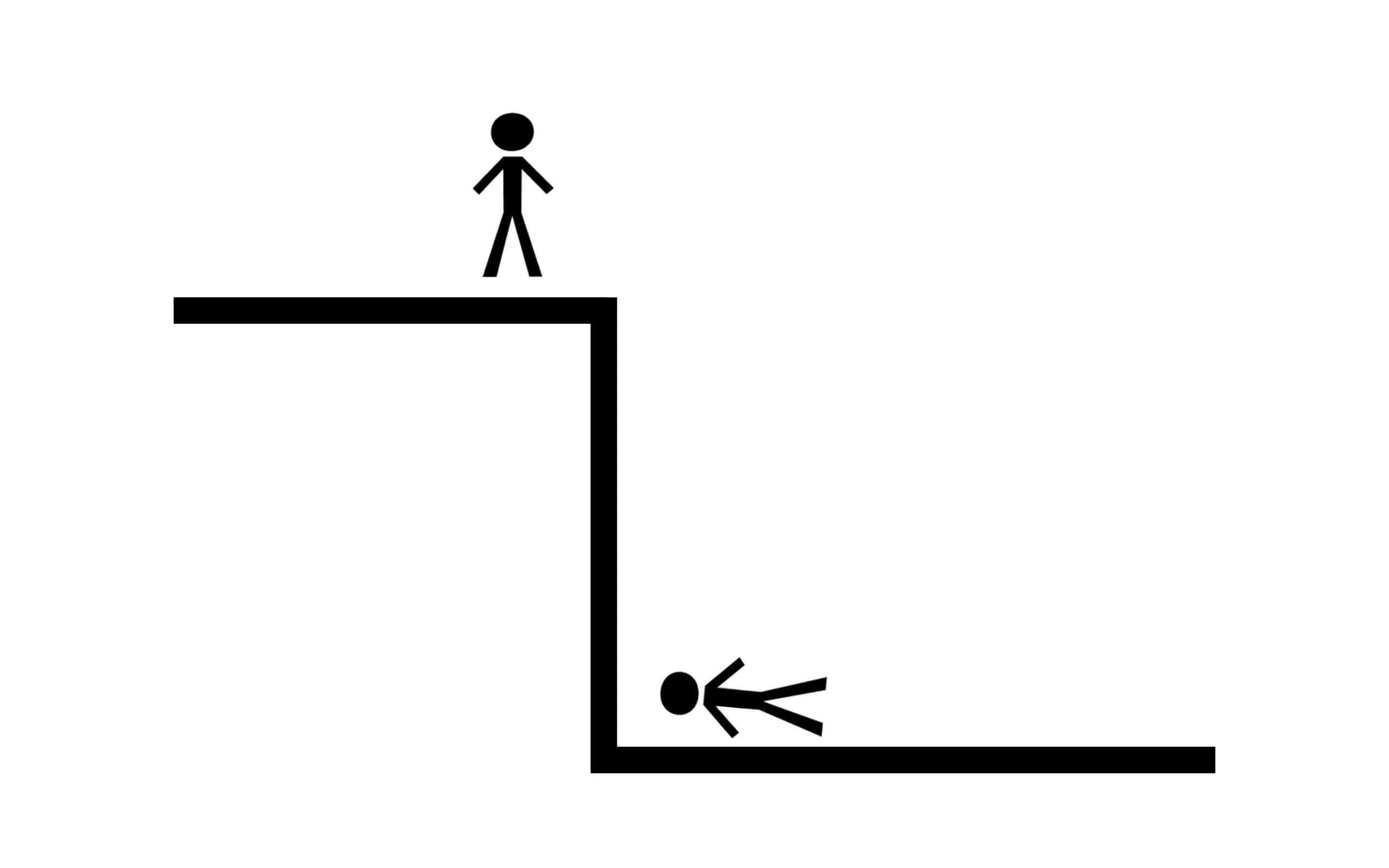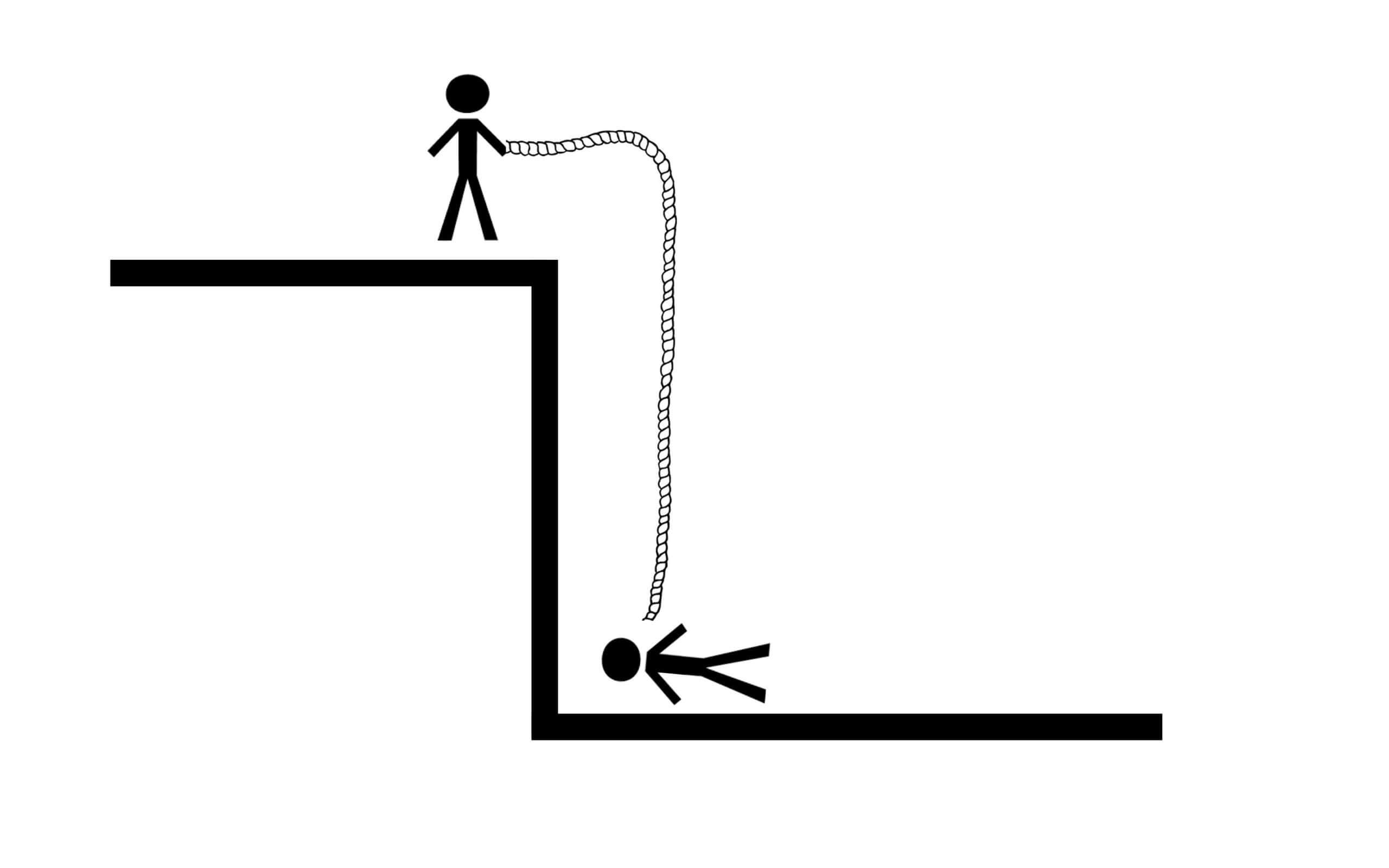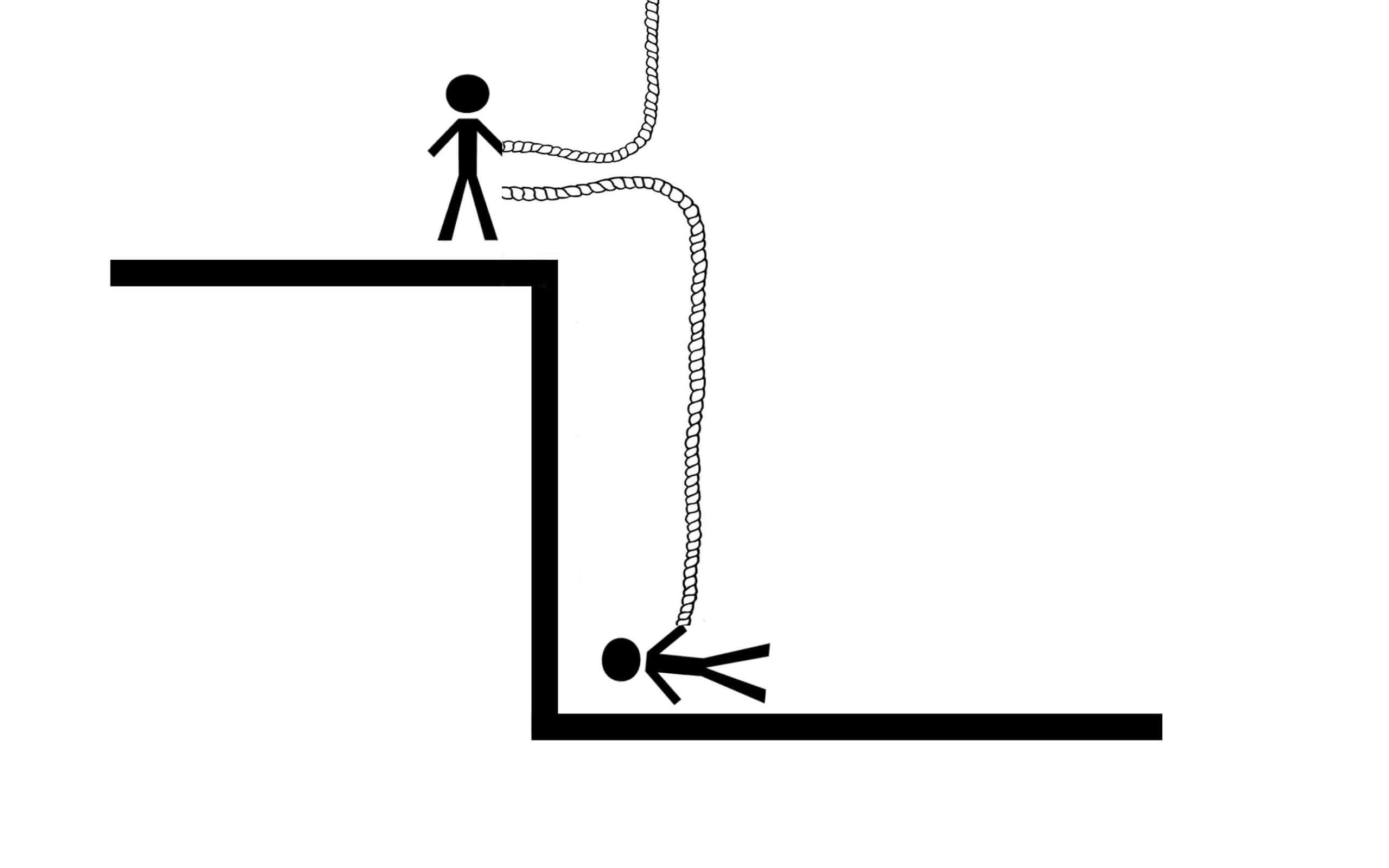























Click here to view listing below for 2Co 9:8
During a recent sermon, I shared an illustration I have used during counseling sessions over the years.
It was very different doing this illustration in the pulpit, rather than in front of one or two persons across a desk. And I typically do not use any type of multimedia in my preaching. I typically just go to the pulpit with my Bible, and a half-sheet of sermon notes, if necessary.
But I tried something a little different. And I think it got the point across I was trying to make about loving difficult people and being faithful in difficult relationships.
After a person or couple in counseling share with me the challenges of the relationship, I respond with biblical truth, godly wisdom, and gospel challenges. Occasionally, I also draw a crude little picture of a person on top of a cliff and another person laying at the bottom of the cliff.

"This is you, on the top of the cliff," I explain. "And that is the person you love at the bottom. He or she has done something that hurt themselves, wronged you, and wronged the relationship. The temptation is to just walk away. But that is not God's will."
Then I draw a rope from the person on the top of the cliff to the person at the bottom of the cliff.

Then I explain that it is God's will that you reach out and help that person up to restore the relationship that has been damaged. The obvious danger, of course, is that the person may pull you down, as you are trying to pull that person up.
This is when the person across my desk often chimes in, "Yes! That's exactly what I'm going through! I'm tired of pulling. It feels like that person is not trying. And I am being dragged down by this relationship."
"So what do you do?" I ask.
Then I draw a picture from the person at the top of the cliff reaching up to God in heaven.

This is the answer. The only answer. You are free to reach out in love — tender love, tough love, sacrificial love, or radical love — when you are secure in the the Lord's steadfast love for you.
If you are dependent on the other person in the relationship for your sense of identity, worth, or esteem, you are always in danger of being pulled down by what that person thinks, says, or does — or does not think, say, or do. But you do not have to worry about people pulling you down when you know who is holding you up.
[Tweet "You do not have to worry about who's pulling you down when you know who's holding you up."]
So… Who's holding you up?
The Blue Letter Bible ministry and the BLB Institute hold to the historical, conservative Christian faith, which includes a firm belief in the inerrancy of Scripture. Since the text and audio content provided by BLB represent a range of evangelical traditions, all of the ideas and principles conveyed in the resource materials are not necessarily affirmed, in total, by this ministry.
Loading
Loading
| Interlinear |
| Bibles |
| Cross-Refs |
| Commentaries |
| Dictionaries |
| Miscellaneous |
